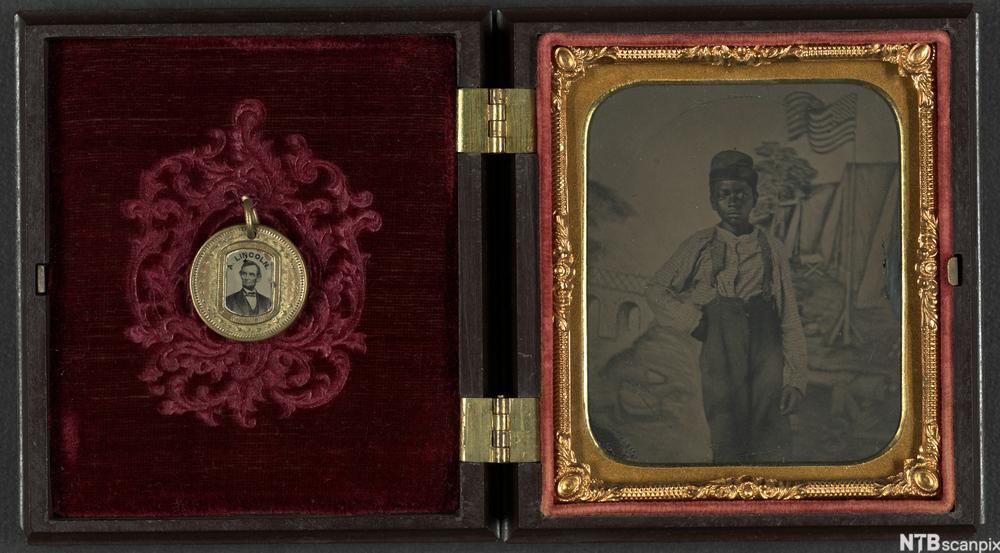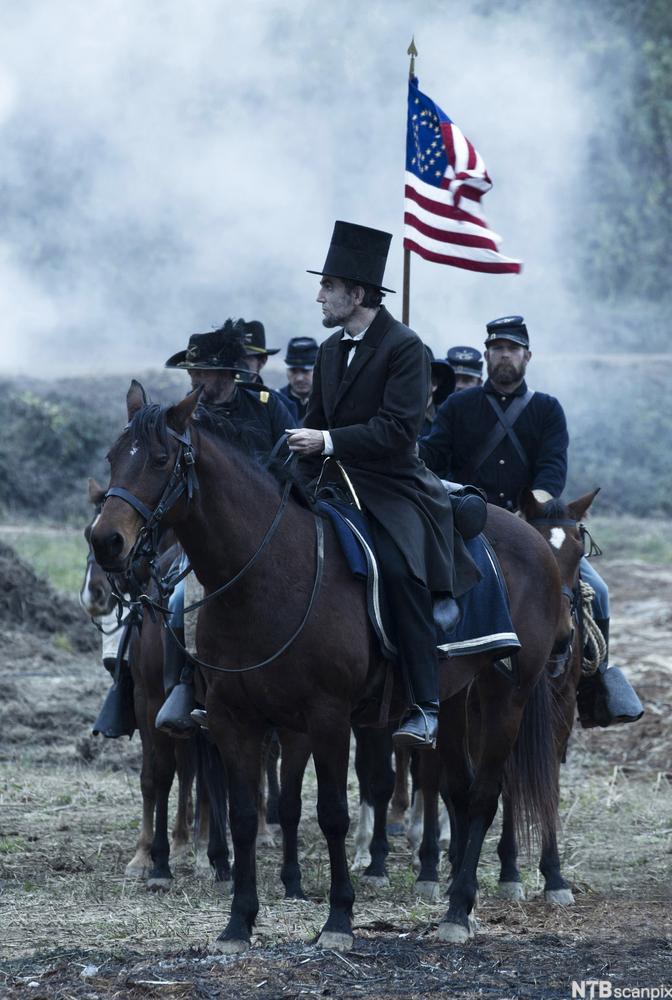
If Norwegian students were to rank their favorite subjects in past English lessons, it is unlikely that American presidents would be on the list. Still, if you remember one president, Abraham Lincoln might be the one.
What is it about Abraham Lincoln that continues to fascinate people?

Watch the film trailer. What do you think it was about Abraham Lincoln that makes him one of the most admired American presidents?
Is it his humble background?
Suggested answer
Americans love stories that contain elements of the rise from rags to riches and the self-made man. Lincoln, who was raised in a log cabin and lacked formal education, really lived this dream when he became a lawyer and eventually America's 16th President. But this cannot be the only reason, can it?
Is it his physical appearance?
Suggested answer
In modern presidential campaigns, which to a great extent are a battle contested in the media, we have seen that appearance is important. A youthful, attractive candidate will pick up more votes. In the 1860s modern media were not even invented, of course, but this is how the German born Carl Schurz describes his first glimpse of Lincoln;
his head was “towering far above those surrounding him”, his face was “homely, deeply furrowed, swarthy, haggard...", whereas his eyes were “deep-set, melancholy... from time to time illuminated with a merry twinkle”.
The overall impression was according to Schurz bizarre. Lincoln’s face and appearance aroused strong feelings. Some journalists insisted that he was just too ugly to serve as president, whereas others felt deep affection and sympathy. His looks inspired artists and in particular, cartoonists, who loved making caricatures of his haggard, furrowed face.
What about his political views?
Suggested answer
Lincoln became the first Republican president when he was elected president in 1860. The Democratic Party had dominated the political scene since the 1820s and had recruited all the presidents since then. When the Republican Party was formed in 1854 by people who wanted to abolish slavery, it soon challenged the aristocratic Democratic South. The slave owners in the South dreaded the Abolitionists, and threatened to withdraw from the Union. When Lincoln, who was known as one of the detested Abolitionists, won the election in November 1860, the warning bells chimed all over the South. One by one, the Southern states pulled out of the union, causing the newly-elected President to declare secession illegal. The Civil War was a fact. In a speech in 1858 Lincoln had used the Biblical words, "A House Divided Against Itself Cannot Stand", referring to the present government's futile efforts to endure while there were slave states in the South and freed slaves in the North. Now the House was shaking, and the issue was slavery.
Is it his role in the Civil War?
Suggested answer
Wars are difficult and hard, and a war between brothers is even harder. When Lincoln, with firm conviction, declared war, the North had some advantages; it consisted of populous states - 21 million people vs. the South with 9 million, of which 3.5 million were slaves. In addition to manpower, the Northerners had factories that could produce weapons, railroads and ships and a "modern" money economy, and they had the President. Whereas the rural south had its crops of tobacco and cotton and was heavily dependent on slaves in the fields. The war lasted for four years and caused more than 600,000 casualities - more human lives than any war Americans have been engaged in since. Thus - apart from a few weeks - Lincoln was a war President for his entire presidency. A victory called upon political and military skills, as well as abilities to enhance the democratic principles embedded in the Constitution. When the Southerners surrendered in April 1865, Lincoln had managed to save his House.
Is it his fight to abolish slavery?
Suggested answer
To start with Lincoln was not among the fiercest Abolitionists. To meet complaints about being too slow on the emanicipation, he explained:
"I would save the Union. I would save it the shortest way under the Constitution. The sooner the national authority can be restored; the nearer the Union will be "the Union as it was". ... My paramount object in this struggle is to save the Union, and is not either to save or to destroy slavery. If I could save the Union without freeing any slave I would do it, and if I could save it by freeing all the slaves I would do it; and if I could save it by freeing some and leaving others alone I would also do that." (Letter to Horace Greeley, August 22, 1862)
Still, when in 1863 he signed the Emanicipation Proclamation, giving all slaves in states that were not under Union control, their liberty, he reportedly said: "I never, in my life, felt more certain that I was doing right, than I do in signing this paper". It is without doubt Lincoln's efforts that assured the adoption of the 13th Amendment in 1865, and thus closing centuries of the inhumane practice of slavery in all the states. Is it his iconic death? Peace treaties were not officially signed yet, when Lincoln was assassinated in Washington DC on the evening of Good Friday, April 14, 1865. A stage actor entered the President's box at the theatre causing no alarm since he was an actor and fired his gun. On the following day President Abraham Lincoln died. The assassin, John Wilkes Booth, was a passionate Confederate and anti-abolitionist.
Is it his rhetoric skills?
Suggested answer
In 1860, Abraham Lincoln met potential voters in New York. He had announced his candidacy and had attracted a demanding audience, which no doubt was curious about this man straight from the prairie. His speech was to the point and his style was poignant and eloquent. By referring to the issue of slavery, he convinced his listeners: "Let us have faith that right makes might, and in that faith, let us, to the end, dare to do our duty as we understand it.” His speeches are historical and rhetorical treasures. One of the most notable is his speech after the Battle of Gettysburg in 1863, the Gettysburg Address.
Is it his impact on the history of the United States and its people?
Suggested answer
Soon after his death Abraham Lincoln became immortalized by artists. One of them was the poet Walt Whitman with his commemoration poem from 1865, "O Captain! My Captain". Not only African Americans, but the whole nation should embrace Lincoln for his effort to make Article I in the Declaration of Independence, "All men are created equal", a bit closer to the truth. Abraham Lincoln's victory and the abolition of slavery secured the position of the Republicans, and the party dominated the political scene up to the 1930s